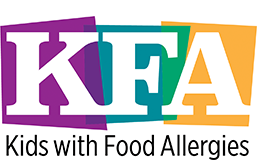 Avg. rating 5 from 2 votes.
Avg. rating 5 from 2 votes.
Recipe Created By: misvr
3/4 cup sweet potato, approximately (~1 large or 2 small)
4 Tbsp olive oil
1/3 cup amaranth flour
1/3 cup tapioca starch
1/4 cup sugar (optional)
1/4 tsp baking soda
1/4 tsp xanthan gum (optional)
Bake sweet potato (~6 min in microwave works well). Peel and cut/mash. (Can also use leftovers.)
Add olive oil and cream together using mixer. Add dry ingredients and mix.
Use ungreased mini muffin pan or mini muffin cups. Batter will seem slightly dry and crumbly. Push together with fingers into muffin tin to make batter hold together.
Bake at 350 °F for 15 minutes. Makes ~18 mini muffins.
The texture isn’t your typical muffin consistency – much denser. I never use sugar or xanthan gum since we haven’t passed yet – the texture seems unaffected and my little guy doesn’t notice.
Corn Substitutions: Corn is a common ingredient in products. Starch, modified food starch, dextrin and maltodextrin can be from corn. Consult with your physician to find out which corn derivatives you need to avoid. Many corn-free options are available in the US. Find out more about
corn substitutions.
Gluten: Gluten is a protein found in specific grains (wheat, spelt, kamut, barley, rye). Other grains are naturally gluten-free but may have cross-contact with gluten-containing grains. Look for certified gluten-free products if you need to avoid gluten. Find out more about
wheat and gluten substitutions.
Toby’s Sweet Potato Muffins
 Avg. rating 5 from 2 votes.
Avg. rating 5 from 2 votes.



















